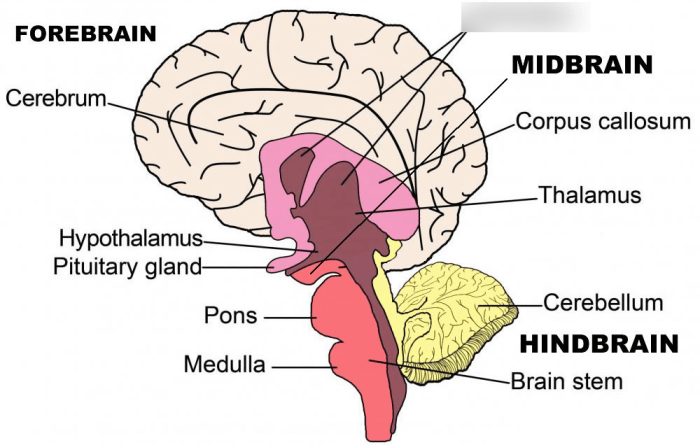Embark on an in-depth exploration of the AP Psychology Unit 12 Practice Test, a meticulously crafted resource designed to enhance your understanding of the fundamental principles and methodologies that shape the discipline of psychology. This comprehensive guide delves into the intricacies of research methods, data analysis, and the practical applications of psychological research, providing you with a solid foundation for success in your AP Psychology exam.
As we delve into the intricacies of Unit 12, we will unravel the complexities of psychological research, exploring the diverse methodologies employed to uncover the mysteries of the human mind and behavior. We will critically examine the strengths and limitations of each research approach, empowering you with the knowledge to evaluate and interpret psychological findings with confidence.
1. Introduction to AP Psychology Unit 12

AP Psychology Unit 12 focuses on the scientific study of psychological research methods, data analysis, and the application of psychological research. It explores the principles and procedures involved in conducting psychological research, including research design, data collection, and statistical analysis.
The unit also examines the ethical considerations and applications of psychological research in real-world settings.
Key concepts and theories covered in the unit include:
- Research methods (e.g., observational, experimental, correlational)
- Experimental design and validity
- Statistical analysis and hypothesis testing
- Ethical considerations in research
- Applications of psychological research to real-world problems
2. Methods and Procedures: Ap Psychology Unit 12 Practice Test

Research Methods in Psychology
Psychologists use a variety of research methods to study human behavior and mental processes. These methods include:
- Observational methods:Researchers observe and record behavior in natural settings or in controlled laboratory environments.
- Experimental methods:Researchers manipulate independent variables to determine their effects on dependent variables while controlling for other factors.
- Correlational methods:Researchers examine relationships between variables without manipulating them.
Strengths and Limitations of Research Methods
Each research method has its own strengths and limitations:
| Method | Strengths | Limitations |
|---|---|---|
| Observational | Naturalistic, provides rich data | Can be influenced by observer bias, difficult to control for confounding variables |
| Experimental | High control, can establish cause-and-effect relationships | Artificial, may not generalize to real-world settings |
| Correlational | Can identify relationships between variables | Cannot establish cause-and-effect relationships |
Designing and Conducting a Psychological Experiment, Ap psychology unit 12 practice test
To conduct a psychological experiment, researchers must carefully design and implement their study. This involves:
- Defining the research question and hypothesis
- Selecting participants and assigning them to experimental and control groups
- Manipulating the independent variable
- Measuring the dependent variable
- Controlling for confounding variables
- Analyzing the data and drawing conclusions
3. Data Analysis and Interpretation
Statistical Techniques in Psychology
Psychologists use a variety of statistical techniques to analyze data and draw conclusions about their research findings. These techniques include:
- Descriptive statistics:Describe the distribution of data (e.g., mean, median, standard deviation)
- Inferential statistics:Test hypotheses and make inferences about the population from which the sample was drawn (e.g., t-tests, ANOVA)
- Correlation analysis:Examine relationships between variables
Interpreting Statistical Analyses
Researchers must carefully interpret the results of their statistical analyses. This involves:
- Examining the p-value to determine the significance of the results
- Considering the effect size to assess the magnitude of the effect
- Avoiding common statistical errors (e.g., Type I and Type II errors)
Data Analysis Examples
Data analysis can be used to draw conclusions about psychological phenomena. For example, a researcher might use a t-test to compare the mean scores of two groups on a test of intelligence. If the t-test finds a significant difference between the groups, the researcher could conclude that the groups differ in intelligence.
4. Applications of Psychological Research
Real-World Applications of Psychology
Psychological research has a wide range of applications in real-world settings. These applications include:
- Clinical psychology:Treating mental disorders and promoting mental health
- Educational psychology:Improving teaching and learning methods
- Industrial-organizational psychology:Enhancing workplace productivity and employee satisfaction
- Forensic psychology:Applying psychological principles to legal settings
- Health psychology:Promoting health and preventing illness
Examples of Research Applications
Psychological research has been used to improve people’s lives in many ways. For example, research on the effects of stress has led to the development of stress management techniques that can help people cope with stress and improve their overall health.
Research on the effects of poverty has led to the development of programs that help people escape poverty and improve their quality of life.
Ethical Considerations in Psychological Research
Researchers must adhere to ethical guidelines when conducting psychological research. These guidelines include:
- Informed consent:Participants must be informed of the purpose and risks of the research before they participate.
- Confidentiality:Participants’ data must be kept confidential.
- Protection from harm:Researchers must protect participants from physical or psychological harm.
Query Resolution
What is the scope of AP Psychology Unit 12?
Unit 12 of AP Psychology focuses on the methods and procedures used in psychological research, including research design, data collection, and data analysis. It also covers the applications of psychological research to real-world problems and the ethical considerations involved in conducting psychological research.
What are the key concepts covered in AP Psychology Unit 12?
The key concepts covered in Unit 12 include research methods, experimental design, data analysis, statistical techniques, and the ethical principles of psychological research.
How can I use the AP Psychology Unit 12 Practice Test to prepare for the exam?
The practice test provides an opportunity to assess your understanding of the key concepts covered in Unit 12 and to practice applying your knowledge to real-world scenarios. By completing the practice test and reviewing your answers, you can identify areas where you need additional study and reinforce the concepts you have already mastered.